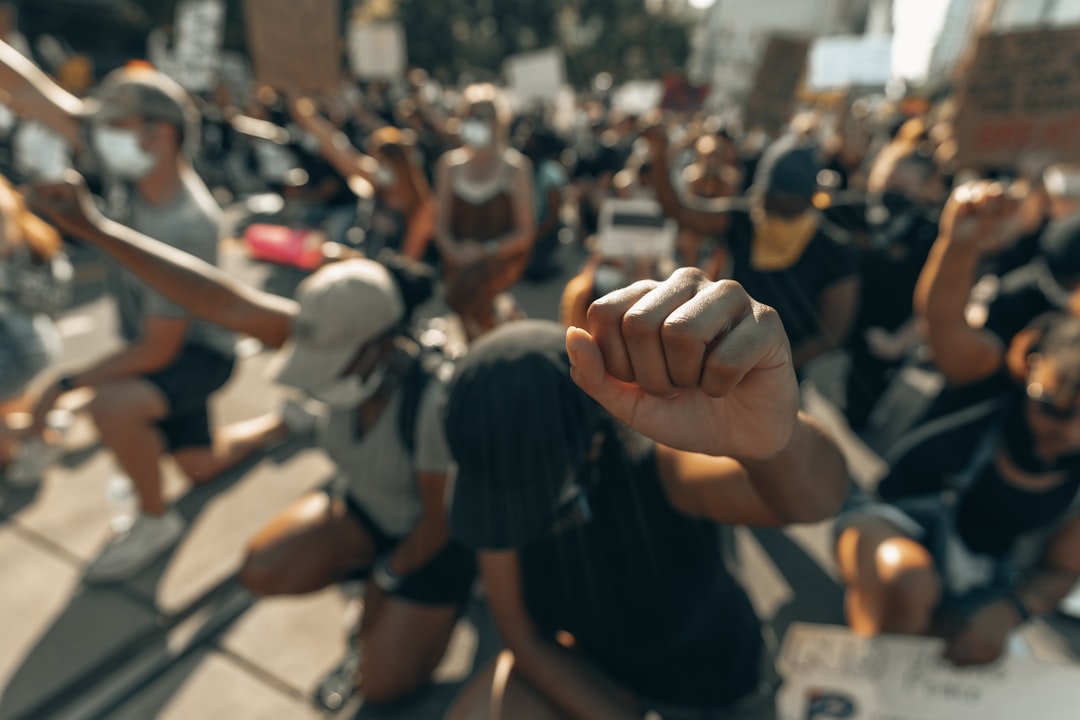
This post is by regular Woke Watch Canada contributor Corrie Mooney.
There has been discussion lately, among those of us who are fighting against Applied Critical Social Justice activism, about whether or not we should continue to use the word ‘woke’ to describe it. After all, it used to mean something a little different. As awareness has grown of the term, many on the left now claim it as being derogatory, while some on the right use it freely to denote anything leftish that they don’t like. Would it not be better to go after their bad ideas or bad behaviour, or is there some other way to describe them that is not being stigmatized? Needless to say, we at Woke Watch Canada do not agree with this assessment.
What’s in a Word
So what does woke mean and where did it come from?
‘Woke’ comes from African American vernacular meaning roughly ‘awake’. An early high profile usage was a 1962 article in the NY Times describing the term as meaning ‘hip’, aware of what’s ‘in’. From that, through the 1960’s it evolved organically to mean that one was aware of racism, or injustice in general, and from this the Critical Race Theorists deliberately appropriated it in the 1980s. They saw, and see themselves as the natural inheritors of the Civil rights movement (more on this below). This usage remained fairly low key, as was CRT in general, until the Great Awokening of the 2010s. This was when Identity Politics was transformed from a purely political ideology, into the cult like fundamentalist movement we see today. This can be seen in Google’s Ngram Viewer for the phrase “stay woke”:
This was how the Critical Social Justice movement described themselves, and it was a tactical mistake.
Because it finally gave us a label to use for them.
Once you label me, you negate me
One of the foundations of woke ideology is a theory of culture called structuralism. This theory, which can be useful and illustrative at times, deals a lot with contexts and meanings, especially within language. They are laser focused on language and have used it as a weapon effectively over the past several decades. The original popular manifestation of pre-woke ideology focused heavily on using language ‘correctly’ – a.k.a. political correctness. They earnestly believe that if they can shape what people are allowed to say, they can shape how they think. To this end they have manipulated language by pushing words out the Overton window, shifting definitions (gender, racism, etc.) and employing academic jargon to confuse.
Another foundation of woke ideology is Neo-Marxism. Unlike its infamous forebear, Neo-Marxism focuses on power structures and culture as hierarchies of oppression. It is much less likely to use violence and relies more on slow subversion – “the long march through the institutions”. It uses forms of moral camouflage- such as legitimate social justice issues- to disguise itself from discovery, and as such it really, really doesn’t like lines of distinction being drawn between it and its liberal host.
But these lines need to be drawn.
Why?
Our biggest observation so far in trying to raise awareness of the problem of wokeism is that people don’t understand the distinction between liberal social justice, and critical theory. The moral camouflage is very effective and people are reluctant to make arguments that may sound racist or homophobic. They put woke excesses down to well-intentioned individuals taking things too far or just reacting negatively to an understandable provocation.
The critical consciousness that is meant by woke is radically different than the principles behind liberalism’s understanding of justice. Though it seeks to confuse the two, the woke believe in oppressive power structures that go in one direction only (privileged over the oppressed) based on simple fixed identities of people. Their one way definitions of racism for example, is itself deeply racist by proper liberal understanding (discrimination and prejudice based on race). They are not fighting for justice by any reasonable definition.
Liberalism’s universal humanism didn’t just emerge out of the enlightenment- it continues the age old pro-social altruism of the monotheistic religions which in turn reflected ancient human instincts for social cohesion. The principles of justice and underlying ethos of the western liberal democracies, while never perfectly realized, are based on treating individuals as moral agents independent of their identities.
A distinction between these two radical approaches to society must be made and maintained.
Of course the woke were going to stigmatize any label applied to them- that’s their game! They would do that for any brand we could try to apply to them. They’ve already dodged the less user-friendly ‘Identity Politics’ (“All politics are Identity Politics”) and Intersectionality doesn’t exactly roll of the tongue. They are going to stubbornly cling to their host as their entire strategy depends on it. Yes, there was an organic meaning to woke that is legitimate, but that definition was niche and did not come into global prominence. Yes, some on the right are going to abuse the term, but we have to patiently and persistently hold fast to the proper understanding. No longer can we allow associative reasoning to veto rational arguments.
For once the woke’s manipulation of language has backfired on them and it’s a hat that they will have to wear.




Fine article. Thanks